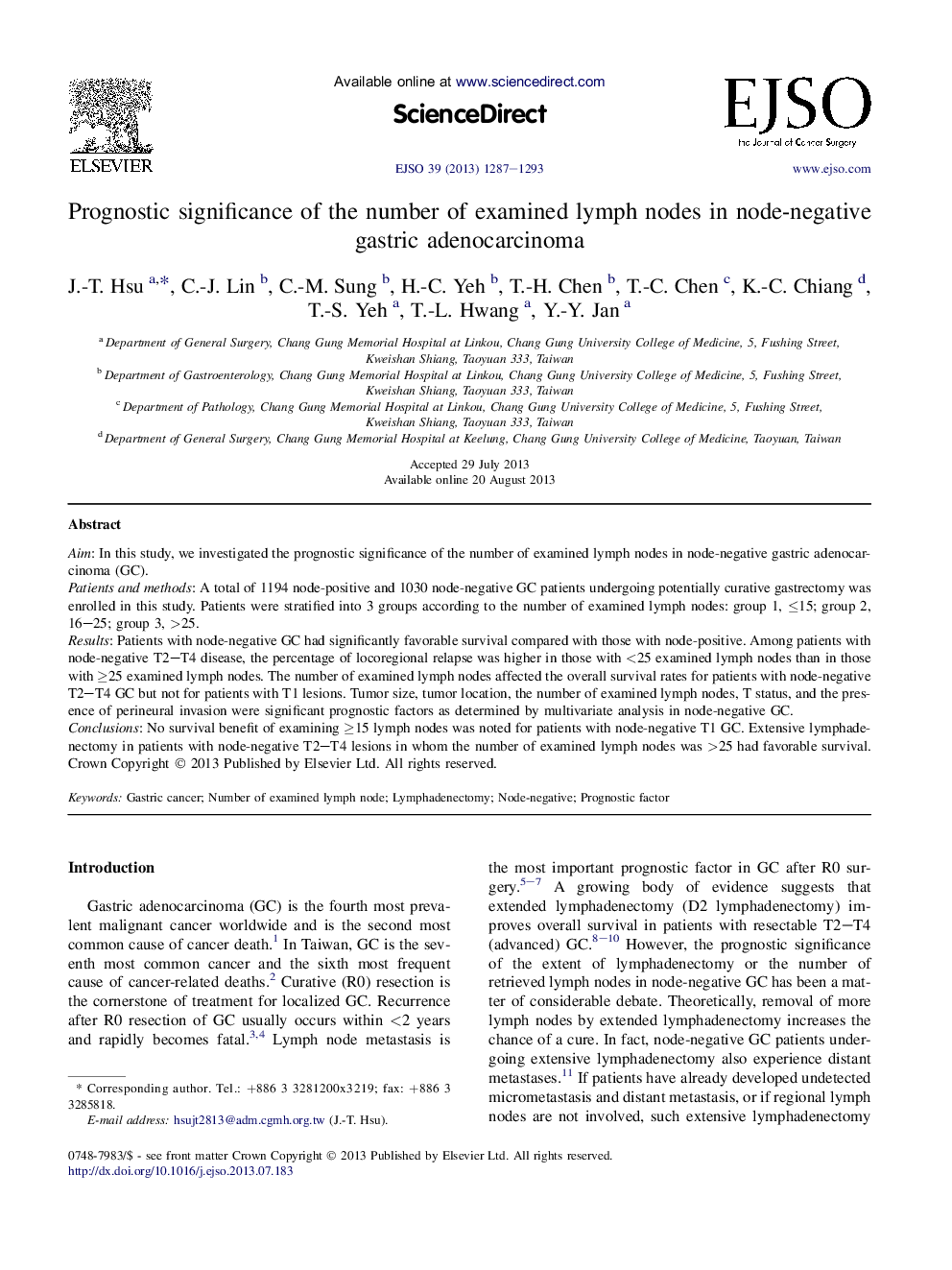| Article ID | Journal | Published Year | Pages | File Type |
|---|---|---|---|---|
| 3985701 | European Journal of Surgical Oncology (EJSO) | 2013 | 7 Pages |
AimIn this study, we investigated the prognostic significance of the number of examined lymph nodes in node-negative gastric adenocarcinoma (GC).Patients and methodsA total of 1194 node-positive and 1030 node-negative GC patients undergoing potentially curative gastrectomy was enrolled in this study. Patients were stratified into 3 groups according to the number of examined lymph nodes: group 1, ≤15; group 2, 16–25; group 3, >25.ResultsPatients with node-negative GC had significantly favorable survival compared with those with node-positive. Among patients with node-negative T2–T4 disease, the percentage of locoregional relapse was higher in those with <25 examined lymph nodes than in those with ≥25 examined lymph nodes. The number of examined lymph nodes affected the overall survival rates for patients with node-negative T2–T4 GC but not for patients with T1 lesions. Tumor size, tumor location, the number of examined lymph nodes, T status, and the presence of perineural invasion were significant prognostic factors as determined by multivariate analysis in node-negative GC.ConclusionsNo survival benefit of examining ≥15 lymph nodes was noted for patients with node-negative T1 GC. Extensive lymphadenectomy in patients with node-negative T2–T4 lesions in whom the number of examined lymph nodes was >25 had favorable survival.
